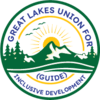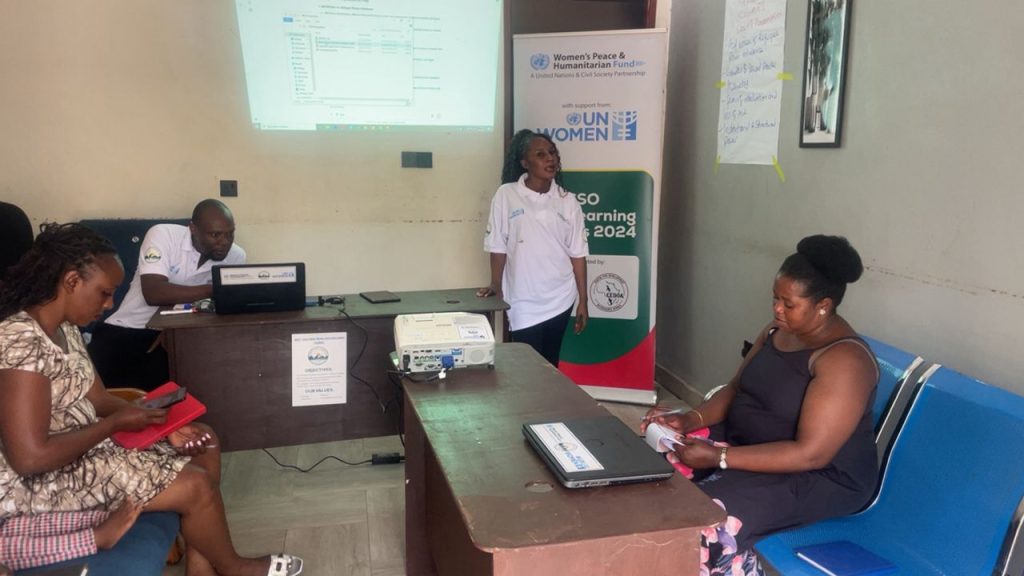
Strengthening Advocacy for Prevention of Sexual Exploitation and Abuse: GUIDE Hosts Transformative Training in Mpigi
Published by the Great Lakes Union for Inclusive Development (GUIDE) – July 2025
In a significant step toward advancing protection and accountability within Uganda’s humanitarian and development landscape, the Great Lakes Union for Inclusive Development (GUIDE), in partnership with the Centre for Development Outreaches Africa (CEDOA), successfully conducted a three-day training on Advocacy Strategies for the Prevention of Sexual Exploitation and Abuse (PSEA). The training took place from 26th to 28th June 2025 at GUIDE’s offices in Jumba, Muduuma, Mpigi District, and was facilitated by a dynamic team comprising Kirungi Diana, Abas Ruhweza, Lawrence Karamagi, and Lynda Aliija.
This activity was part of the CSO Peer Learning Award, a project funded by the UN Women’s Peace and Humanitarian Fund (WPHF) and supported by UN Women. The project seeks to strengthen the technical, institutional, and advocacy capacities of civil society organizations (CSOs) working in fragile and refugee-hosting regions of Uganda.
Equipping CSOs for Inclusive PSEA Advocacy
The training aimed to build participants’ capacity to advocate against sexual exploitation and abuse using an intersectional lens, one that recognizes the layered vulnerabilities based on refugee status, age, disability, and SOGIESC (Sexual Orientation, Gender Identity and Expression, and Sex Characteristics).
Key objectives included:
- Clarifying foundational PSEA concepts and legal frameworks.
- Defining organizational mandates and responsibilities in PSEA.
- Designing inclusive advocacy messages and campaigns.
- Practicing real-life SEA response scenarios with intersectional analysis.
The training brought together 10 staff members from GUIDE and CEDOA, cutting across executive management, research, advocacy, project implementation, M&E, and communications departments. This diverse mix of participants enriched the learning experience, especially on how intersectionality can deepen understanding and response to SEA.
Training Highlights: From Concepts to Action
Day 1: Foundations of PSEA and Intersectionality
Participants explored the definitions, distinctions, and obligations related to SEA, sexual harassment, and safeguarding. Through case studies reflecting Uganda’s humanitarian settings, they critically examined how institutional mandates must align with the realities on the ground.
“I now understand the difference between sexual harassment and exploitation—and how these play out in our field offices,” shared Natumanya Macklin, Program Officer at CEDOA.
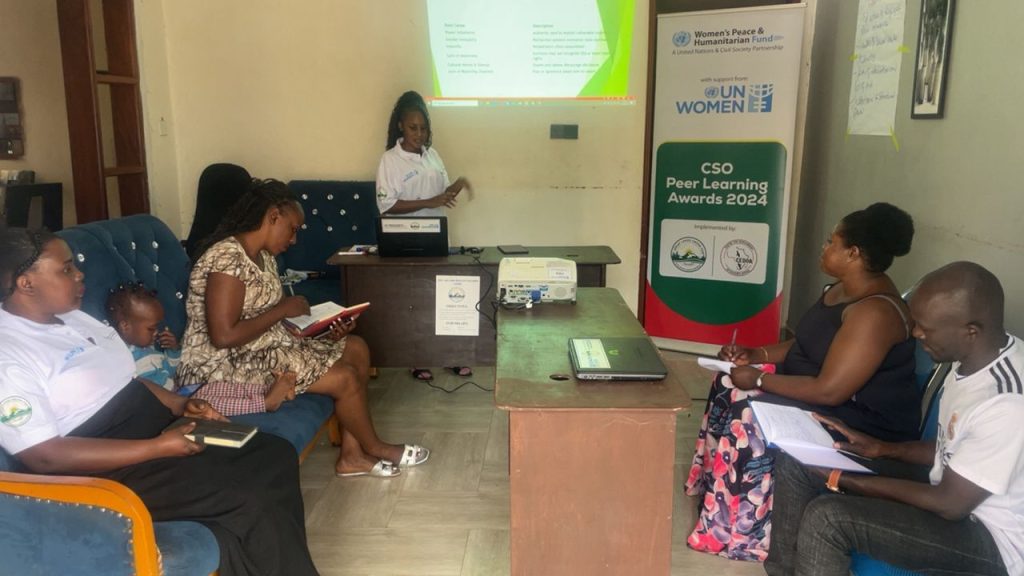
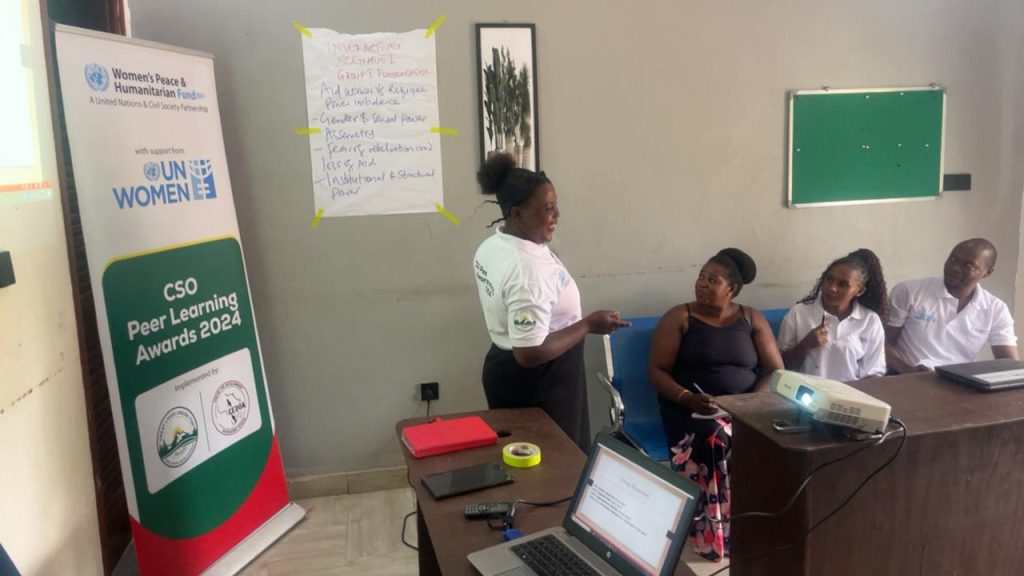
Many called for more localized PSEA trainings, especially for frontline staff and community volunteers, to strengthen real-time response.
Day 2: Advocacy Through an Inclusive Lens
A powerful session on crafting inclusive advocacy messages and campaigns led to eye-opening reflections.
“This session changed how I think about communication. I’ve realized our past messaging was not inclusive of persons with disabilities,” said Ismail Ruhweza, Program Assistant at GUIDE.
Teams proposed community-driven outreach strategies such as drama, storytelling, and radio listening groups, especially in refugee-hosting areas like West Nile. Participants committed to piloting new messages and forming GUIDE–CEDOA advocacy working groups to sustain collaboration.
Day 3: Applied Learning through Simulations
Emotionally charged simulated disclosure exercises gave participants a chance to practice survivor-centered responses, building empathy and technical confidence.
“I didn’t realize how much I freeze when a disclosure happens. Practicing helped me find the right words to respond with compassion,” said a CEDOA social worker.
Scenarios included survivors with intersecting vulnerabilities—such as adolescent girls with disabilities and urban refugee boys—underscoring the need for sensitivity and responsiveness.
The day concluded with a reflection circle, where participants named key takeaways in one word: Empathy, Accountability, Courage, Listening, Inclusivity.
Key Outcomes and Institutional Commitments
The training generated both immediate insights and long-term strategic outcomes for participating organizations:
1. Enhanced Knowledge of Legal and Policy Frameworks
Participants gained clarity on key PSEA instruments, including:
- The UN Secretary-General’s Bulletin (ST/SGB/2003/13)
- The IASC Six Core Principles
- Uganda’s National PSEA Framework (OPM/UNHCR)
Many committed to cascading this knowledge across their teams through internal sessions and knowledge-sharing forums.
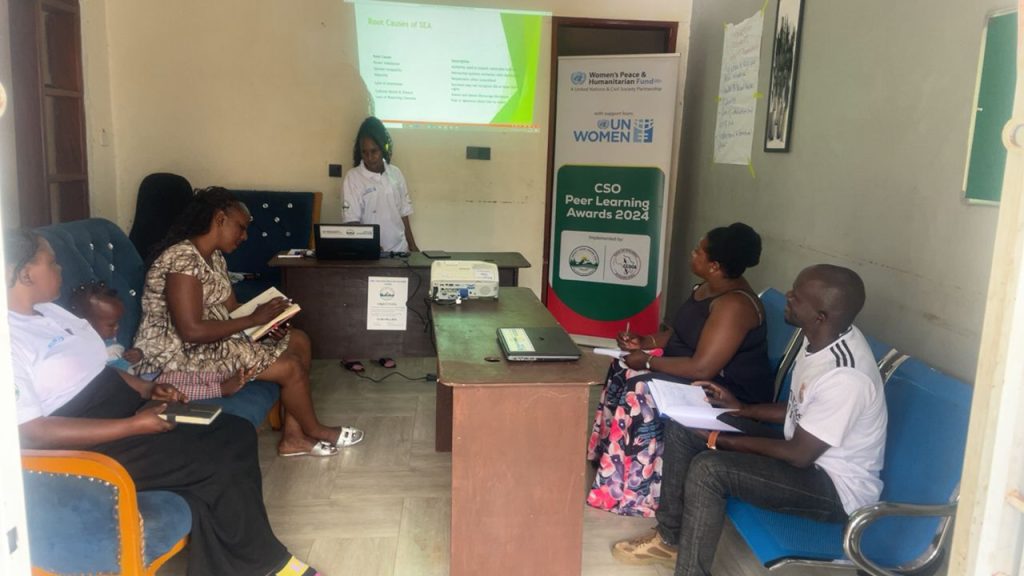
2. Inclusive Advocacy Tools and Campaigns
Participants created draft advocacy tools grounded in cultural sensitivity and survivor dignity, such as:
- Radio jingles in Kiswahili, Luganda, and Arabic.
- Non-stigmatizing posters for settlements and urban settings.
- Concepts for drama-based outreach in areas with strong oral traditions.
3. Stronger Survivor-Centered Response Capacities
Through role-plays and facilitated feedback, participants refined their ability to apply the Listen–Respect–Refer–Report model with an awareness of power dynamics and social stigma.
4. Drafted Institutional PSEA Action Plans
GUIDE and CEDOA staff initiated internal PSEA action plans tailored to both refugee settlements and urban neighborhoods. These plans include:
- Designating PSEA focal points.
- Embedding safeguarding in VSLA and youth activities.
- Establishing safe, accessible complaints mechanisms.
- Scheduling quarterly simulations and induction training.
Looking Ahead: Sustaining the Momentum
GUIDE and CEDOA are now working to finalize and operationalize their PSEA action plans within one month, with progress to be shared during future peer learning check-ins. The momentum generated from this training points to a broader commitment: ensuring that safeguarding and survivor-centered approaches are not just policies on paper, but embedded in daily practice.
As Uganda continues to navigate complex humanitarian challenges, GUIDE remains dedicated to equipping civil society actors with the tools to advocate, protect, and respond with empathy and integrity.
“Our advocacy must reflect the realities of those we serve—especially those at the margins,” emphasized Lynda Aliija, one of the lead facilitators.
For further updates on GUIDE’s safeguarding initiatives and advocacy programming, follow us at www.guideug.org or email info@guideug.org.
